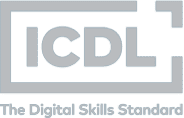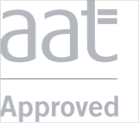Human Resources, or HR, is one of the high-paying and fast-growing jobs for the future. Before, HR was structured within the admin departments of many companies. Now, organisations realise the importance of HR specialists in driving employee motivation and company performance.
In this article, we will discuss:
- What HR is
- What HR professionals do
- The qualifications needed to enter the field, and
- How you can start a career in HR without spending years in university.
Are you brand new to the workforce? Looking for a career change? Either way, this guide will provide the information you need to understand what HR is and how to start a career in it.

What Does HR Stand For?
You may be wondering, what is HR? HR stands for Human Resources. It is a department within a company responsible for managing employees. HR ensures employees have proper training, compensation, and satisfaction with their work.
HR is an integral part of any organisation. It helps to manage one of the most complicated assets in a company- the workforce.
What Does HR Do?
So what is HR responsible for? The main responsibility of HR is to manage the employees. HR ensures that employees are well-equipped to perform their work and fulfil the business’s objectives.
An HR career can be challenging but also very rewarding.
The human resources salary in the UK, and throughout the world, is high. According to Talent.com, the average salary of a UK Human Resources professional is £35,000 per year. This works out to around £18 per hour- almost double the National Minimum Wage.
Interested in having a career in HR? Your responsibilities will include the following:

Recruiting and Hiring New Employees
HR professionals need to attract and select qualified individuals for open job positions. Their tasks include the following:
- Advertising job opening
- Reviewing resumes and applications
- Conducting interviews
- Making hiring decisions
- Negotiating pay packages
Some outsource this task to other organisations to save time and focus on other core tasks. The HR personnel will communicate between the two companies in such cases.
Outsourcing recruitment activities has its benefits but also comes with a cost. HR personnel must analyse whether to outsource the recruitment activities or do it internally.
Managing Employee Relations
HR plays a key role in maintaining positive relationships between employees and management. This includes addressing and resolving conflicts, fostering a positive work environment, and promoting open communication.
For example, a company employee reported experiencing harassment from a coworker. The HR team will investigate the complaint, gather evidence and interview the involved parties. They will then decide how to address the issue. They also ensure that the employee who made the complaint is protected from retaliation.

Creating and Implementing HR Policies and Procedures
HR must ensure that the organisation is in compliance with all applicable laws, such as those related to
- Equal employment opportunity
- Labour laws
- Safety regulations
Suppose a company plans to open a new location in a different state. The HR department will ensure that the company complies with all the local labour laws- such as minimum wage, overtime, and discrimination.
Handle Employee Training, Performance Evaluations
HR handles the implementation of systems for managing employee performance. For example, they create ways to keep track of performance goals, feedback, and reviews.
They will also work with managers to identify areas where employees need improvement. Then, they can create a plan to address them.
HR is also responsible for identifying employees’ training and development needs. They will provide opportunities for employees to improve their skills and knowledge.
For instance, if a company wants to improve the digital marketing skills of its employees. The HR department will assess employees’ current skills. Next, they will identify the specific training needed for each employee. They will then organise and schedule the relevant training courses.

Manage Employee Compensation and Benefits
HR also develops and administers the organisation’s compensation and benefits programs, including:
- Determining salaries and wages
- Administering employee benefits such as health insurance and retirement plans
- Ensuring compliance with relevant laws and regulations.
For example, a company is reviewing its compensation and benefits package. They want to ensure it is competitive with other companies in the industry. HR will research similar companies to gather data on salaries and benefits. They will use this data to recommend company compensation and benefits package changes.
Employee Engagement and Retention
HR must design and implement programs and policies that help retain valuable employees and reduce turnover. This can include things like:
- Flexible work arrangements
- Employee recognition programs
- Career development opportunities.
HR develop programs and initiatives that engage and motivate employees. These can include employee surveys, focus groups, and employee engagement teams.
Suppose a company is experiencing high turnover in a specific department. The HR department will conduct exit interviews as one of its initiatives. This helps them understand the reasons for the turnover and identify any common themes. Based on this information, they will develop programs and policies to address the issue. In this way, they can improve employee retention.

HR Qualifications – Do You Need a University Degree?
An HR career can be fulfilling and engaging for an individual who is a people person. It requires good communication and management skills.
Traditionally, HR professionals have a degree in Human Resources or a related field.
Yet, it is actually not necessary to have a university degree to enter the HR field. HR tasks mostly require management and soft skills. Thus, you can secure entry-level positions in this field through training and certifications. You can gain all the necessary skills and HR qualifications with HR training programs.
Along with certifications, you need to have good soft skills for a smooth HR career. Soft skills are skills such as communication or time management. Another helpful program for aspiring HR professionals is a conflict management program. It will help you to manage conflict situations at work.

How to Start a Career in HR – Step by Step
If you want a career in HR without spending years in university, then follow these steps:
- Enrol in HR courses that build up soft and hard skills related to this career. Courses will also give you the necessary HR qualifications.
- Always be on the lookout for entry-level HR positions. You can apply for jobs such as HR administrator or HR assistant. By securing these jobs, you can start to grow your HR career.
- Build a network with other HR professionals. Also, attend industry events to gain knowledge.
- Consider advanced training to progress in your career and increase your earning potential.
We hope you have learned more about what HR is, and what this career entails. Starting a career in HR can be a rewarding choice for those who have a passion for helping people. In this career, you can play a big part in a company’s success.
Spending years in university to start your career in HR is optional. You can begin your HR career via different paths, such as gaining certifications. Then, you can grow your career through work experience. With a good balance of skills and experience, you can work your way up to higher-level positions. This will also lead to a higher salary in the human resources field in the UK.
To learn more about how you can start a career in HR, contact us at Pitman Training to speak with our friendly advisors. Or, visit one of our training centres today.


















